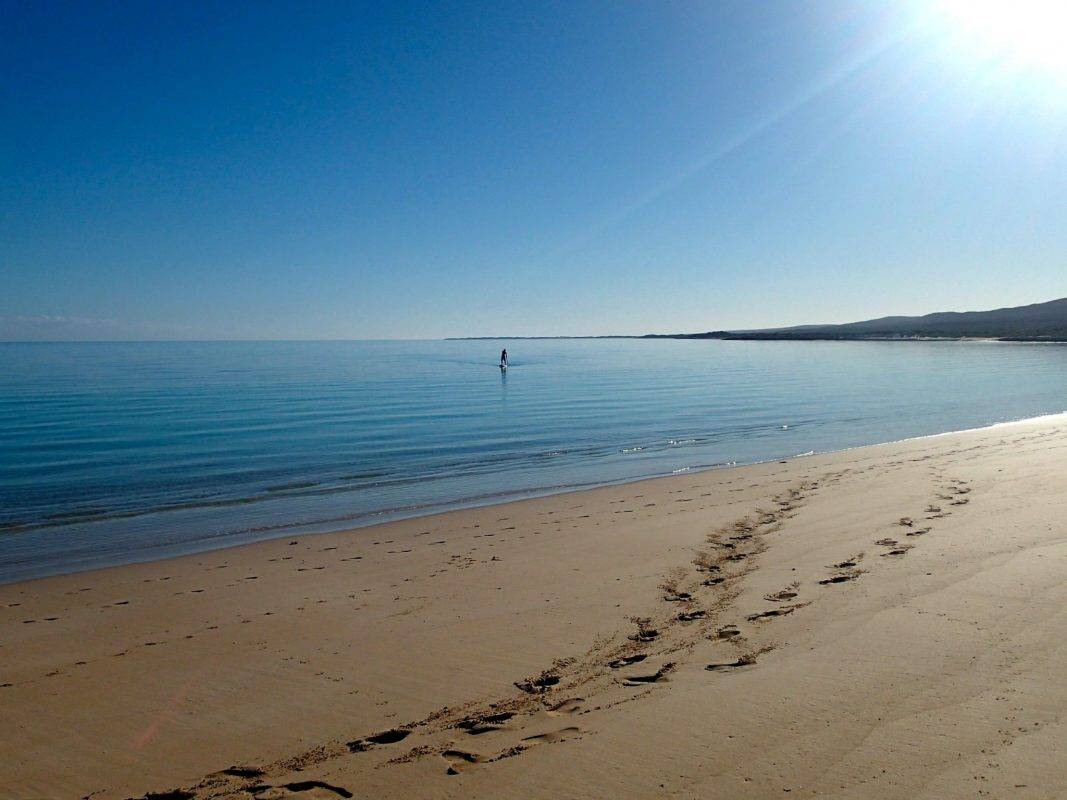
Simplicity Helps You Thrive
20th Nov 2014Lessons from the Bush* #1
I’ve recently returned from an amazing three-month trip with my family in the wilds of the Kimberley region in Western Australia. After being back into the ‘real’ world (as some would say) for a few weeks, some interesting and useful insights about leadership and life have bubbled to the surface. Over the next few weeks, I’ll share these with you, and hopefully they’ll be useful.
First, some context. The idea behind the trip was to spend some good quality family time together while experiencing a completely different way of living. We set ourselves up to be fully self sufficient, having bought a vehicle and camper trailer that would handle whatever terrain we threw at it. For the vast majority of our time, we were remote. Often, the closest town was over 300km away, and we didn’t need to restock our supplies for two or three weeks.
We knew the places we were going didn’t have any phone or internet connectivity, and we deliberately didn’t allow our kids any screens (Kindles were OK for reading, but no iPads for games or movies). In fact, the vehicle we had had screens in the headrests of the seats, but I put seat covers over them as soon as I bought it, and the kids never knew until the end of the trip!
We covered almost 12,000km in three months, didn’t see a cloud or a raindrop, and had the time of our lives.
So, what did I learn? Here’s the first insight:
Simplicity Helps You Thrive.
One of the things my wife and I noticed when we returned was how crowded, busy and complex our normal lives are. Suffocating, in fact. In particular, we found that we were spending a huge amount of time and energy managing obligations, commitments and deadlines, co-ordinating meetings and appointments, and reading and processing emails.
When we were in the bush, the only obligations we had were to ourselves. On a day-to-day basis, we didn’t have promises to fulfil to others, or things to make happen, or timetables to stick to. We didn’t have weekends. We had none of the distractions of the seemingly indispensible ‘tools’ that we all use to run our daily lives to – no email, no voicemails, no text messages, no reminders. We were operating on a different, simpler rhythm. I felt like a modern-day Henry David Thoreau.
That simplicity helped us thrive. We were more in the present. It freed us up so we could enjoy what each day brought. We were able to linger in conversation. We were able to spend time on things that took our interest. We were able to follow our noses, and be spontaneous and crazy.
We were living what was most important to us. Our simpler life strengthened our ties as a family, and each of us shone just that bit brighter.
Most of us live in a world that competes for our attention, and, if we let it, we can easily lose touch with the activities and people that help us to thrive. How do we hold onto that? That’s something I’ve been pondering since I’ve been back.
Here are some deliberate practices that I’m experimenting with to help me answer that question:
- I own my mornings. At the start of the day, I take a 20-30 min walk, and then write down what’s most important for me to do that day. I decide my priorities first, and only then do I check my emails to see what other people might need from me.
- I build in ‘breathing space’ during each day. That essentially means chunks of free time before and after commitments in my diary. Not for checking emails, but just to think and be.
- I’ve hired myself an assistant. I’m starting to outsource a lot of the co-ordinating activities to someone who’s a lot better at them than me, and, more importantly, will allow me to free my time up to do what I do best.
- We make time for each other. Each Sunday night, I’ll plan with my wife and kids the one special thing we each want to do with each other in the coming week. e.g. my wife and I might go out for a drink around to the local bar one night, and I’ll plan a surf with my eldest son, a movie with my daughter or a bike ride with my youngest. That keeps us connected beyond the ‘operational’ day to day.
None of this is rocket science. The trick is (funnily enough) to keep it simple and do-able. So far it’s working.
So I’m wondering – what works for you? How do you stay connected to what’s most important? What helps you to thrive?
* For non-antipodeans, ‘the Bush’ is a term meaning pretty much anywhere outside of a city or town.
PHOTO by Digby – Winderabandi Point, Ningaloo Station.
Like this post? You’re only getting half the story. Sign up to my ‘Fresh Thinking’ newsletter, delivered monthly to your inbox.


5 thoughts on “Simplicity Helps You Thrive”
Comments are closed.